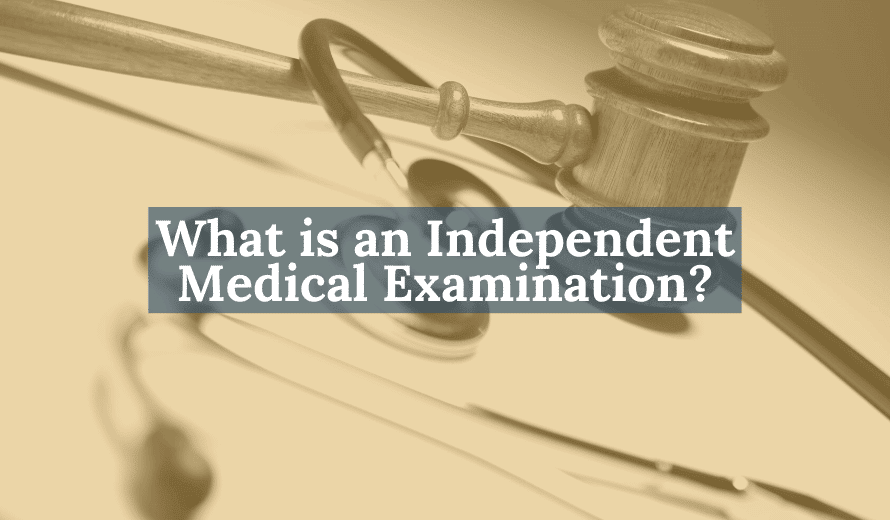An IME is also called an Independent Medical Examination. An IME is a medical examination that is done on you, by a doctor who has never treated you before. This doctor is neutral, and it is their job to write a report documenting as thoroughly as they can what your injuries are.
They are not confirming or denying what your own doctors are saying, but are instead giving their own opinion of what they think is happening with your health and injuries based on their own medical expertise.
The reason that an IME is requested is because the doctors that treat you are not technically neutral considering it is most likely that you have formed a preexisting relationship over the years prior to your injuries or during the rehabilitation stages after the injuries. An IME is a way to corroborate what you are saying is happening with your health and is typical done by a doctor that has never seen you or met you before.
SOME IME EXAMPLES
When you get hurt and want to sue the person who caused your injuries (that person then becomes a Defendant in your lawsuit), you provide their lawyers OR their insurance adjusters with your medical documents to show what’s hurt and how bad it is. You also show what treatments you are doing to try and get better. This can include lots of documents from doctors like your regular family doctor (GP, general practitioner), your physiotherapist, your chiropractor, and anyone else who is involved in helping you get better.
The Defendant’s lawyers OR insurance adjusters will get this information, go over it, and they might believe that you aren’t as hurt as you say you are, and want you to prove it. The most common method to prove your motor vehicle accident injuries is by requesting an IME.
All parties involved in the litigation can then get a copy of this report and move forward with the lawsuit—you could settle the lawsuit, or, continue on with litigation depending on what this IME report says and any other information that is relevant and important.
Another example, say you are experiencing an illness that renders you unable to continue working, and need disability benefits. If you have an insurance policy that covers disability benefits—such as a life insurance policy or Auto insurance police commonly referred to as SECTION B—you would apply for these benefits to your insurance company. Your insurance company might want you to do an IME so that they can confirm you are eligible to receive benefits from them. Or, if you have already been getting benefits, they might ask you to go to an IME to prove that you still have the right to keep getting them in the future. An example of this can be seen in the case of Nayyar v Costco Wholesale Canada Ltd., 2012 BCCA 501 (CanLII).
Your insurance company will receive a copy of this report and then it will look over it and determine whether you are entitled to further benefits payments.
SHOULD I GO TO AN IME?
There is no law that says you have to attend an IME. But, you should.
Going to an IME is an important way for you to demonstrate your commitment to your case and cooperation. Even more importantly though, an IME is your way to corroborate what you are subjectively saying is happening to you by bringing in that objective third party, the doctor who has never treated you. This way, that objective and neutral doctor can produce a report that helps eliminate doubts about your condition.
Let’s go back to our examples above.
If your insurance company asks you to go to an IME and you do not, it can harm your case and any benefits you may be receiving. Your insurance company will be free to decide that because they don’t have that IME report, there is not enough evidence that you are as sick as you say you are, and the medical documentation you provided from your own doctors just isn’t enough. When that happens, they may stop paying you any benefits all together and you have lost out on what you would otherwise have been entitled to if you had attended the IME. Appealing this decision could be very difficult to do.
Further, and even more critically for you, if you are attempting to sue someone for causing you harm, and you did not attend the IME they requested you to attend, that fact can reflect badly on you and your case. It could ultimately lower the amount of compensation from the at fault party that you could be entitled to should you be successful in your lawsuit.
Either way, going to an IME is very important. If something comes up and you can’t go to that appointment on that day/time, you can reschedule it. But, remember to reschedule it and follow through on going! Finally, if you are not sure on what to do then contact your lawyer and get the proper guidance and legal advice.


